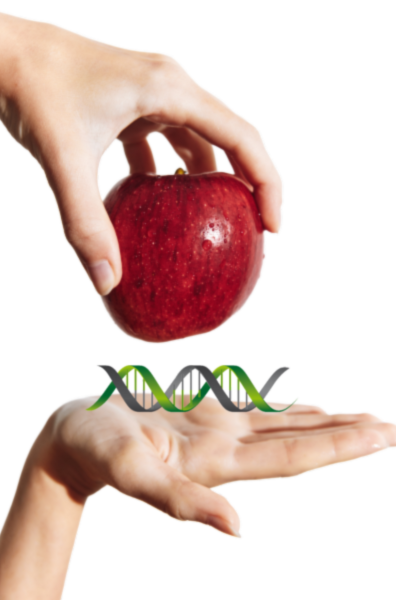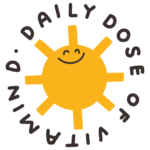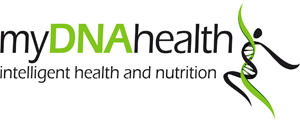What Foods Should I Eat?
A Guide to Personalized Nutrition through DNA, Epigenetics, and Nutrigenomics
A Guide to Personalized Nutrition through DNA, Epigenetics, and Nutrigenomics
The question of “what foods should I eat?” is a common one, yet the answer is far from one-size-fits-all. With advances in our understanding of DNA, epigenetics, and nutrigenomics, it is becoming increasingly clear that our nutritional needs are influenced by genetic makeup and environmental factors. This blog post will explore how these elements interact to inform dietary choices for weight loss, health optimization, and disease prevention.
DNA serves as the blueprint for our bodies, influencing everything from metabolism to the risk of chronic diseases. Variations in genes can affect how individuals respond to different types of foods.
Genetic Variants: Certain genetic polymorphisms can determine how efficiently the body metabolizes fats, carbohydrates, and proteins. For instance, variations in the FTO gene have been linked to obesity risk, making some individuals more susceptible to weight gain when consuming high-calorie diets 1
Personalised Diets: Understanding these genetic predispositions allows for the creation of personalized diets that align with one’s genetic profile. A person with a genetic variant that affects carbohydrate metabolism may benefit from a low-carb diet, while another individual may thrive on a higher carbohydrate intake 4
Epigenetics involves changes in gene expression that do not alter the DNA sequence itself but can be influenced by environmental factors, including diet.
Dietary Impact: Nutrients can trigger epigenetic changes, impacting how genes are expressed. For instance, a diet rich in antioxidants can promote beneficial gene expression, reducing the risk of inflammation and chronic diseases3
Reprogramming Genes: The foods we consume can effectively “reprogram” our genes, potentially altering our health trajectory. This means that adopting healthier eating habits can have long-term benefits for gene expression and overall health5

Nutrigenomics is the study of how food affects our genes and how genetic variations affect our nutritional needs.
Tailored NutritionThis field allows for diets tailored not only to personal preferences but also to genetic makeup. Understanding which foods can enhance health based on one’s genetic profile is a significant advancement in dietary science4
Chronic Disease Prevention:Nutrigenomics provides insights into how certain foods can mitigate the risks associated with genetic predispositions to diseases such as diabetes and heart disease2
The environment plays a significant role in shaping dietary choices and habits.
Access to Food: Availability of healthy food options in one’s environment can influence dietary habits. Urban areas may provide more access to fresh produce, while rural regions may have limited options5
Cultural Factors: Cultural attitudes towards food can also impact dietary choices. Understanding these influences can aid in the development of more effective nutritional guidelines tailored to specific populations2
Lifestyle Factors: Stress, sleep, and physical activity levels interact with dietary choices and can affect metabolism. For instance, high-stress levels can lead to unhealthy eating patterns, which in turn may influence weight and health outcomes3
When aiming for weight loss, understanding the interplay between genetics and nutrition is critical.
Caloric Needs: Genetic factors influence metabolic rates, determining how many calories you need to consume for weight maintenance or loss. Personalized diets can help optimize caloric intake based on individual needs1
Food Choices: Opting for whole foods—rich in nutrients and low in empty calories—can aid in weight loss. Diets high in fiber, lean proteins, and healthy fats are generally recommended. Foods such as leafy greens, whole grains, nuts, and seeds provide satiety without excessive calories 4
Behavioral Changes: Understanding your genetic predispositions can help motivate lifestyle changes that promote weight loss. For example, knowing that certain genes affect appetite regulation may encourage individuals to adopt healthier eating habits2
To determine what foods you should eat, consider the following practical tips:
The question of “what foods should I eat?” cannot be answered without considering the intricate relationships between DNA, epigenetics, and environmental factors. By understanding these elements, individuals can make informed dietary choices that align with their genetic predispositions and health goals. As research in nutrigenomics continues to evolve, the potential for personalized nutrition becomes increasingly promising, offering a pathway to optimize health and well-being.
1. ncbi.nlm.nih.gov – Genes and Diet in the Prevention of Chronic Diseases …
2. ncbi.nlm.nih.gov – What should I eat and why? The environmental, genetic …
3. learn.genetics.utah.edu – Nutrition & the Epigenome
4. veritasint.com – The best diet for your health also depends on your genetics
5. theconversation.com – What you eat can reprogram your genes
6. zoe.com – Can genetic diet tests really tell you what to eat?

 The Need for Vitamin D3
The Need for Vitamin D3 